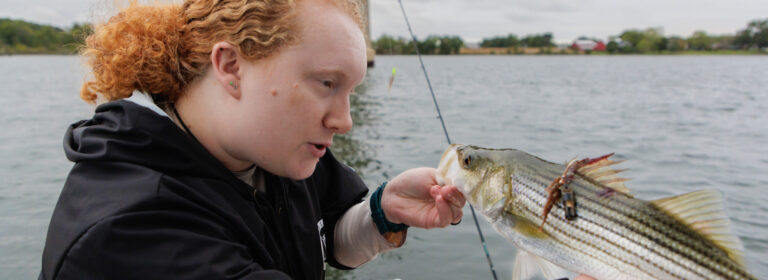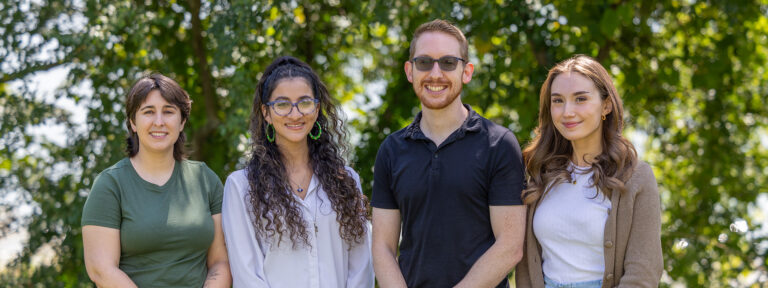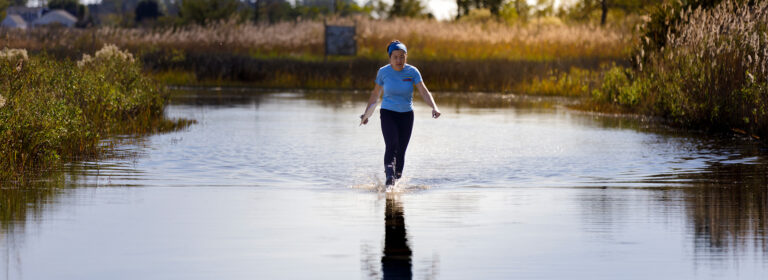Above left to right: Daniel Lassiter, Mahshid Ahmadian, Julia Grenn, Megan Beever, Alyson Hall, Adrian Robins, and Zlatka Rebolledo Sanchez. (Photos provided)
2023 Graduate Fellows Announced
Virginia Sea Grant is pleased to announce the 2023 Graduate Research Fellows. These graduate students from across Virginia will receive professional development opportunities through the fellowship as they address coastal resource issues. During the fellowship, each student will work with a professional mentor who will help them share their research with coastal communities.
“We are thrilled to assemble such a talented group of Graduate Fellows, from diverse disciplinary backgrounds and lived experiences. The future demands innovation and teamwork across disciplines and perspectives, and our Fellows, engaging with their professional mentors and our alumni and professional development services, will be ready to meet those challenges, in resilience, climate change, fisheries, aquaculture, and education,” said Troy Hartley, Director of Virginia Sea Grant.
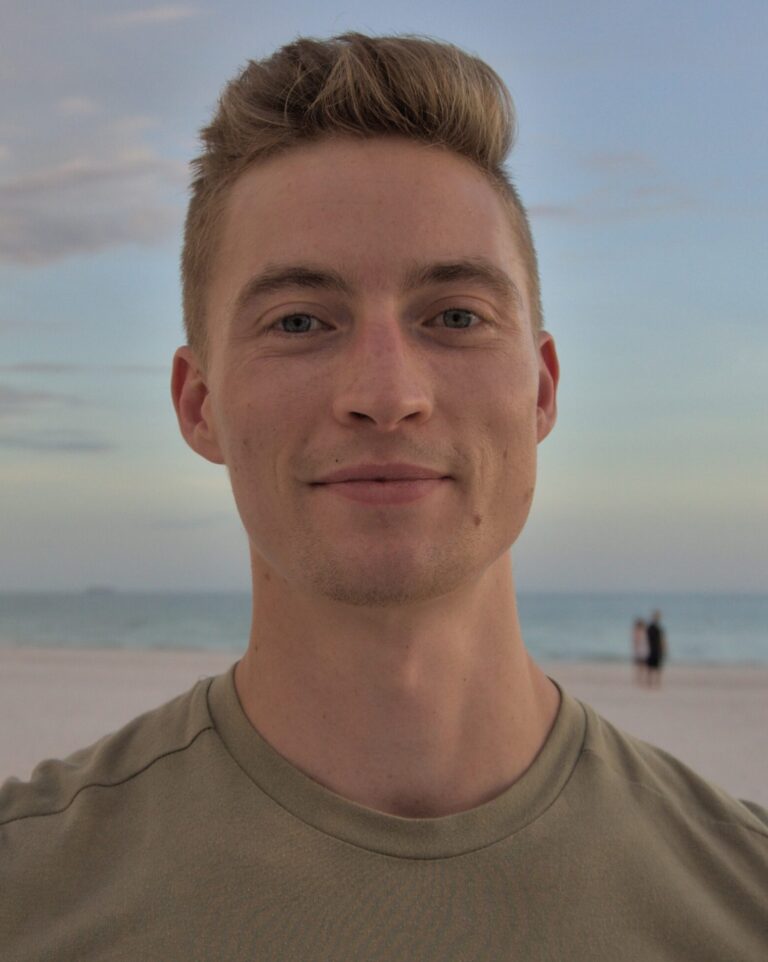
Daniel Lassiter is a civil engineering Ph.D. student at the University of Virginia. Through his research, he hopes to help coastal communities address the challenge of increasing flood risk due to climate change and sea level rise. Due to uncertainty in climate projections and potentially conflicting stakeholder preferences, the process of developing and deciding on a plan can be resource-intensive. To make this process more efficient, Daniel is combining physically-based computer simulations with machine learning techniques in a framework to generate and compare a collection of possible climate-adaptive coastal flood mitigation plans at a neighborhood-to-city scale. The development of this framework will benefit from the rich coastal resilience and stakeholder engagement experience of his mentor at Wetlands Watch.
Mahshid Ahmadian is a Ph.D. student in the Department of Statistical Sciences and Operations Research at Virginia Commonwealth University. Her goal is to expand scientific knowledge in fish movement analysis and its practical use in fisheries management. In her project, she focuses on developing a fish movement modeling tool for fisheries management, utilizing data from acoustic receivers. During her fellowship, she will collaborate with a Marine Spatial Ecologist, Dr. Daniel Crear, to study the movement patterns of Cobia in Virginia and the North Atlantic.
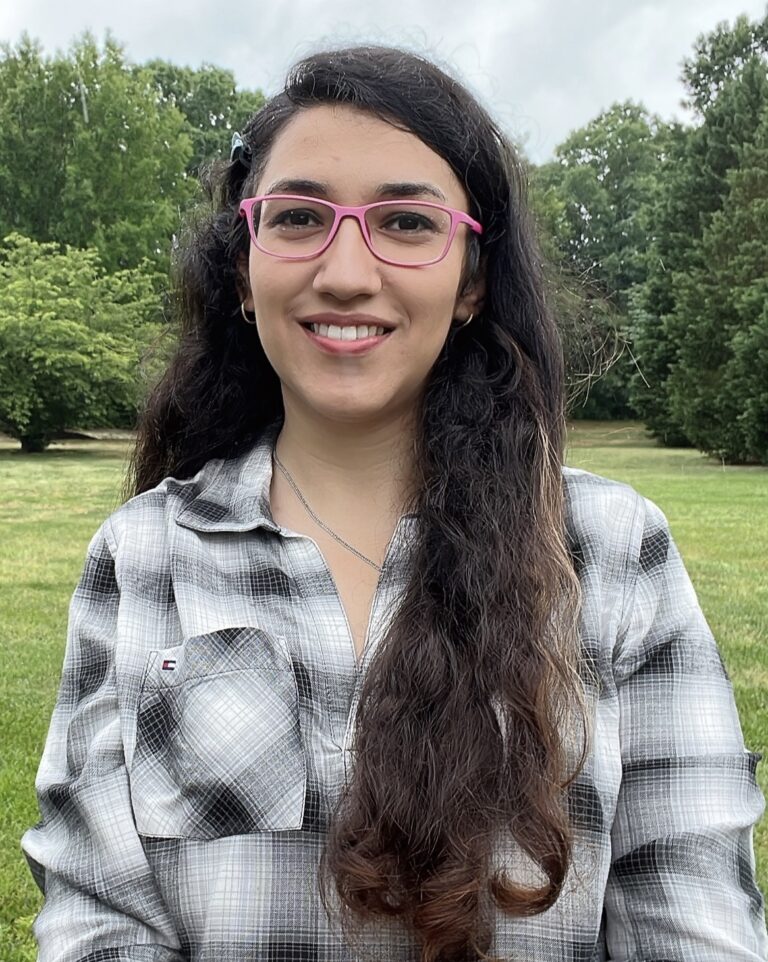
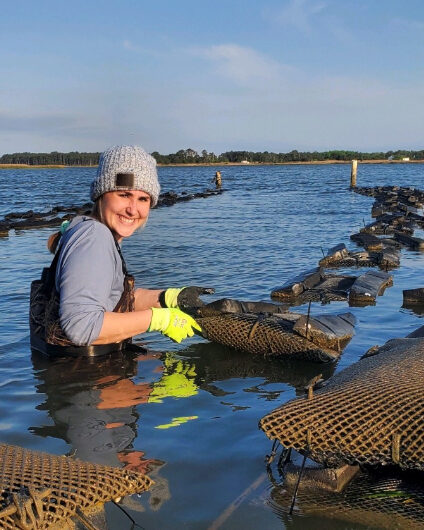
Julia Grenn is a Ph.D. student at the Virginia Institute of Marine Science interested in working with oyster farmers to identify mechanisms that improve farm efficiency and develop more streamlined husbandry practices. Grenn’s project examines how various husbandry decisions at commercial oyster farms affect water parameters inside off-bottom grow-out bags and baskets and if water parameters could be linked to sudden summer mortality events occurring at oyster farms. Grenn is working with Bruce Vogt from Big Island Aquaculture to better understand an oyster’s entire farm-to-table process and become more involved with larger outreach initiatives like the Virginia Oyster Trail.
Megan Beever is a Ph.D. student at Virginia Tech in the Department of Civil and Environmental Engineering. During her fellowship, Beever will study which features of natural tidal inlets influence their long-term evolution and develop a model to predict long-term tidal inlet evolution. She will collaborate with her professional mentor at the Coastal and Hydraulics Laboratory of the U.S. Army Engineer Research and Development Center.
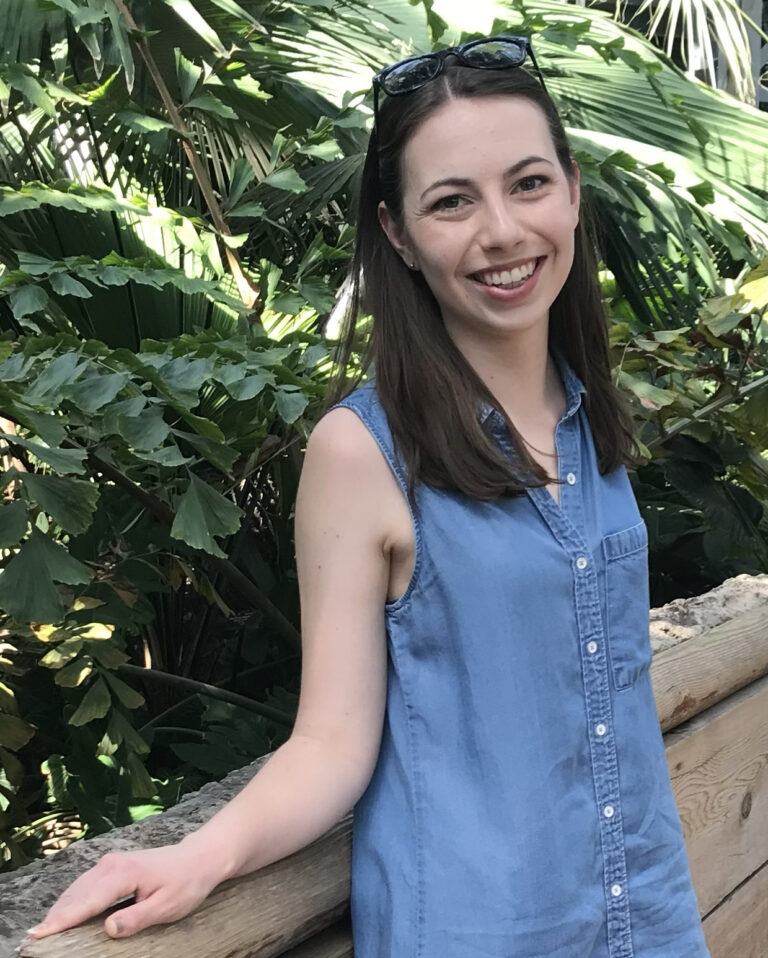
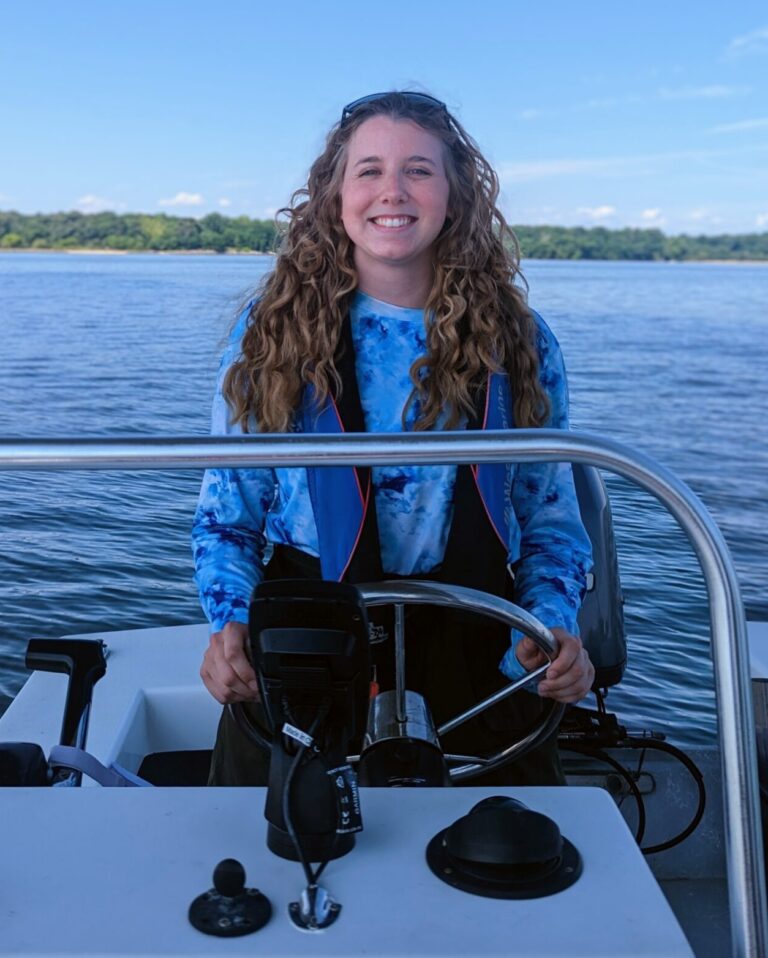
Alyson Hall is a Ph.D. student at the Virginia Institute of Marine Science. Her project focuses on how seagrasses and hard clam aquaculture are interacting on the Eastern Shore of Virginia. She aims to holistically understand seagrasses and hard clam aquaculture from ecological and anthropological perspectives to promote healthy seagrass meadows and a sustainable hard clam industry. During her fellowship, she will work with a professional mentor from the Maryland Department of Natural Resources to learn how to translate science for policy and share her research with communities on the Eastern Shore.
Adrian Robins is a master’s student in landscape architecture at the University of Virginia. His research will utilize the tools and methods of landscape architecture to address the effects of sea level rise on the agricultural lands and communities of Virginia’s Eastern Shore. This will include assessing and spatially representing the threats of saltwater intrusion, Phragmites encroachment, and irrigation pond-salination from the farm to the regional scale, while designing accessible landform and planted natural infrastructural features that can mitigate these threats and improve community resilience. Adrian will accomplish this in collaboration with the agricultural community on the Eastern Shore, including his professional mentor Dr. Mark Reiter of the Eastern Shore Agricultural Research and Extension Center.
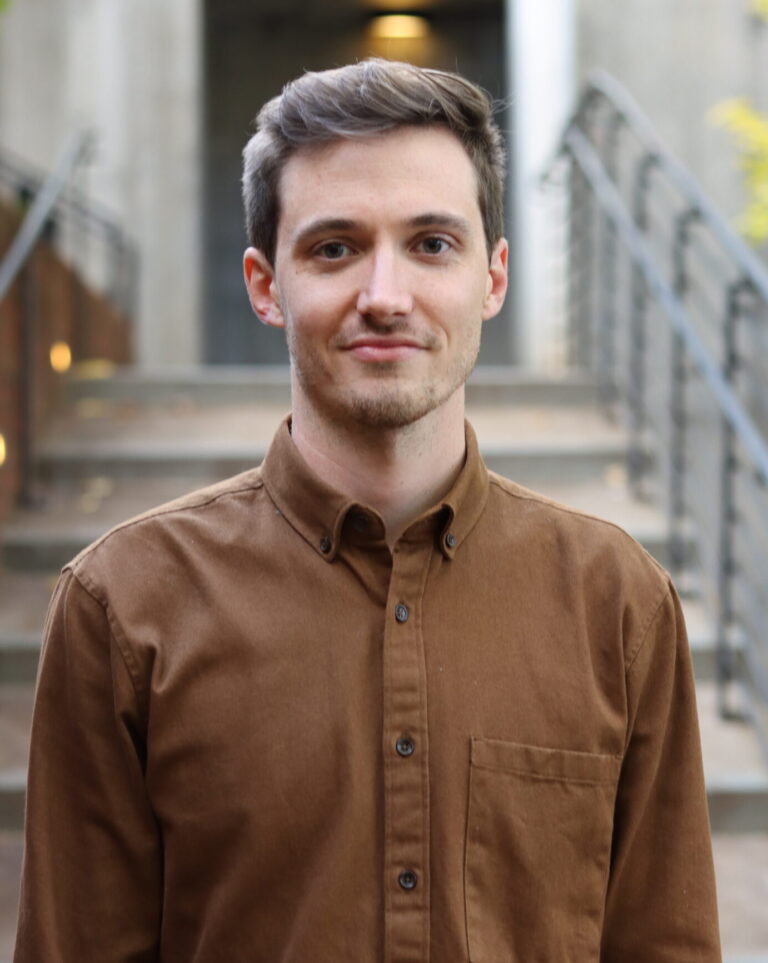
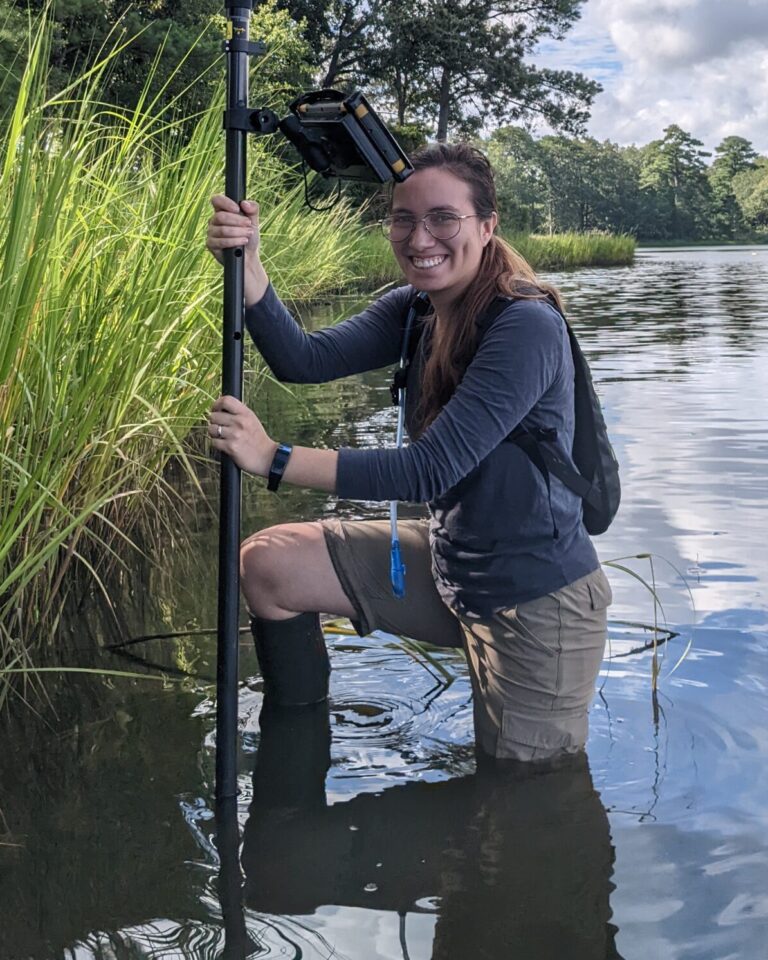
Zlatka Rebolledo Sanchez is an international Ph.D. student in Ecological Sciences at Old Dominion University, affiliated with the Coastal Plant and Ecotone Ecology Lab in the Biological Sciences Department. Her research focuses on studying blue carbon in Virginia’s salt marshes, employing a spatial variability perspective. Zlatka is passionate about bridging the gap between climate change, carbon sciences, and diverse audiences, ranging from students to policymakers. Zlatka’s ultimate goal is to effectively communicate scientific concepts to a broad range of individuals, and she is particularly dedicated to translating her findings from English into Spanish, thereby expanding the reach and impact of her work. By doing so, she hopes to engage with a wider audience and foster greater awareness of the pressing issues related to climate change and carbon management. She will work with her professional mentor Alexandra Clayton from The Pew Charitable Trusts.

